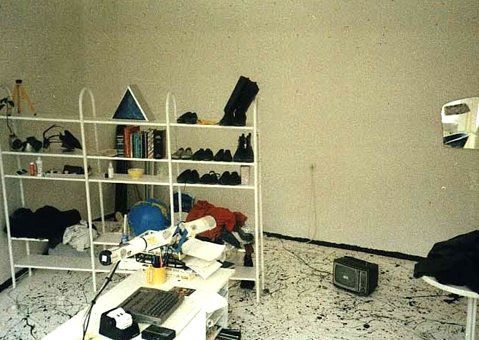This was a plus: like many people who grew up in towns without subways, I loved the U-bahn. I loved the old wooden train cars, I loved the orange-soap smell of the stations. I loved the fact that you could ride without a ticket, even though you sometimes got caught.
I loved the taped woman’s voice that said “Einsteigen, bitte,” when it was time to get on and “Zuruck Bleiben!” when the doors were closing. (Hearing her own voice over and over seems to have driven the poor woman crazy: in 1987, a tabloid ran the headline "Voice of the U-bahn in Nerve Clinic")
Getting off the U-bahn at Wittenburgplatz, I would visit Postfach 3872 and then proceed to my regular café where, like generations of writers, I took advantage of its lights, heating, beverages and sociability while getting some work done.

